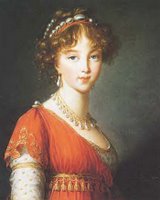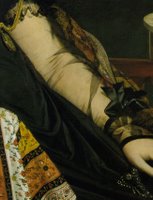I’m just getting caught up on Risky Regencies posts (and everything else), because I, like Elena, have been to a Retreat. Mine was more conference-like–Washington Romance Writers Spring Retreat, always titled In The Company of Writers.
The WRW Retreat is more conference-like, because there are workshops and speakers but it is also retreat-like, because we dress casually and the number of attendees stays small, about 110 this year. No paddling on a lake, like Elena could do, but lots and lots of mixing with friends, old and new.
 As in other years, the agents and editors attending are always asked what is selling these days; what is hot.
As in other years, the agents and editors attending are always asked what is selling these days; what is hot.
Contemporaries, especially small town stories and romances, are doing well, apparently. But all agreed that a good book will find its home and as soon as someone declares something won’t sell, a wonderful book will burst out and become the next big trend. They said it was much more important to feel passionate about the book you are writing than to try to write to trends.
One of the editors said that Regency remains an appeal because readers feel they know the time period and are comfortable there.
Mary Jo Putney talked about her 29 years in publishing and about her return to the Regency genre after writing some contemporaries, fantasies, and YA. Mary Jo also very much advocated writing what you are passionate about and, in the past, she took some big chances with her career to do just that.
What I took away from all this, was how important it is to write a book you are passionate about, no matter what the genre or subgenre.
Speaking of Mary Jo, she said her new release, No Longer A Gentleman, is on bookstore shelves. If you’ve purchased the book before today, check to see if page 362 is missing. A printing error left out page 362 in the first printed books. Ebooks are complete. Go to Mary Jo’s website for the text of the missing page.
Speaking of subgenres. Amanda’s blog yesterday was posted late. Go there and read all about The Taming of The Rogue, Amanda’s latest. Look at its fabulous cover and post a comment for a chance to win a signed copy!
What do you think? Can you tell if the author is passionate about the book you are reading?
Come to Diane’s Blog on Thursday for more about the WRW Retreat.







 As the trap is about to make a turn at a crossroads, a woman approaches. Yes! It’s the heroine, wearing a horrible assortment of drab clothes (she’s in mourning and has dyed something black). As she lifts her skirt to avoid a puddle she reveals a grubby petticoat and a gray woollen stocking collapsing over the top of one boot. So she’s much the same color as the landscape, except for her hair, chopped short, and red gold.
As the trap is about to make a turn at a crossroads, a woman approaches. Yes! It’s the heroine, wearing a horrible assortment of drab clothes (she’s in mourning and has dyed something black). As she lifts her skirt to avoid a puddle she reveals a grubby petticoat and a gray woollen stocking collapsing over the top of one boot. So she’s much the same color as the landscape, except for her hair, chopped short, and red gold. 